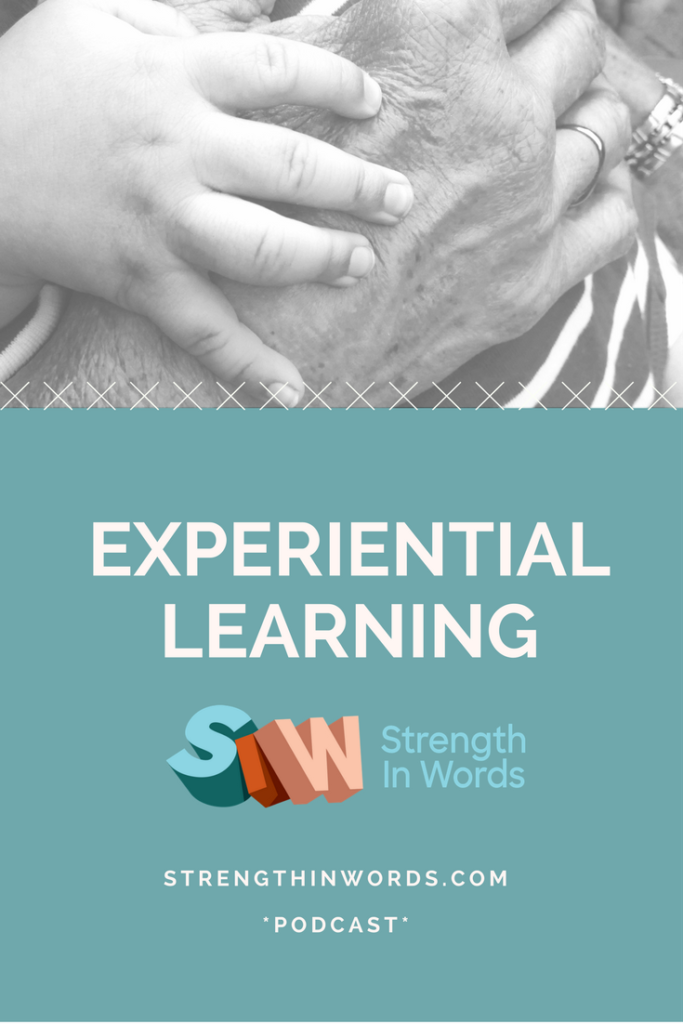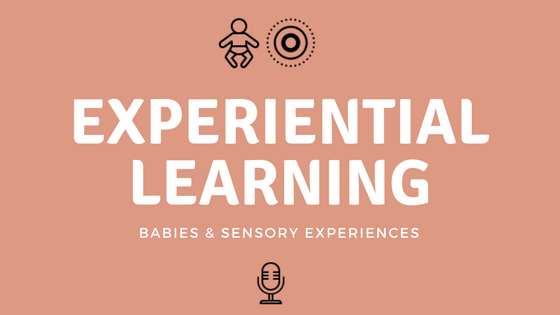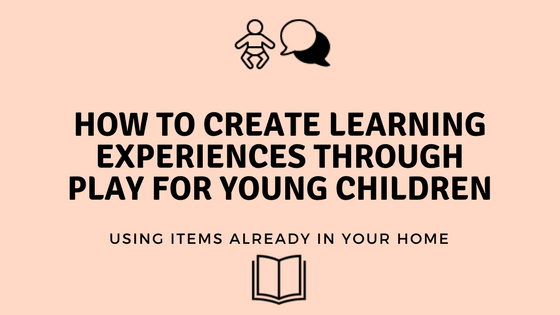Young children learn about the world through exposure, interaction and experience.

On this episode of Learn With Less, Ayelet explores the notion of experiential learning and how we can most effectively provide those experiences.
Below is the transcript of this week’s “Developmental Thought,” an excerpt from the full episode.
For additional information, music, play ideas and the complete interactive family experience, please listen to the entire episode.
So much of what we discuss in Learn With Less episodes is related to the notion of exposing young children to many different types of experiences – those that they can learn from through touch, sound, vision, movement, taste, and those that can combine those different sensory elements.
Psychologist Jean Piaget defined several stages of cognitive development that children move through – now, over the years, the specifics of certain details have met with some contention when new research comes out, but Piaget’s stages of development remain a basic model for our understanding of development – especially in the early years.
>>Don’t Miss Our Corresponding Blog Post<<
Integration and Overlap
Remember, this is a model for cognitive development – but, as we’ve talked about in previous episodes, such as “Holistic Learning,” so much of early development is interrelated – it is impossible to completely separate an infant or toddler’s cognitive development from her motor, social/emotional, or even communication development.
This is because infants and toddlers experience the senses and integrate information in a very different way than adults – they are constantly being stimulated – if not bombarded – by all their senses, and to ensure that life is not a completely overwhelming experience, their brains and bodies must learn to make sense of the world through patterns – of behavior, of movement, etc.
Music and Literary Experiences
I want to touch upon the first two of Piaget’s stages to give you a better sense of how all this is related to experiential learning, but first, as you might have guessed, I want to remind you that musical and literary experiences are the perfect vehicle for movement, auditory, visual, tactile, and emotional experiences, and can focus a young child’s attention as well as engage the senses to help solidify experiences – with vocabulary, with movement patterns, and with bonding between child and caregiver.
The first stage, which lasts from the newborn stage through about two years old, is known as the “Sensorimotor” stage. Within this stage, infants and younger toddlers explore the world by coming into direct contact with it, primarily through sensory and motor experiences.
What this means is that young children learn primarily through movement, touch, and other sensory experiences, as my lovely guest, Ania Witkowska, reiterated in our episode, “Understanding Babies Through Movement.” What these little ones are doing by touching, listening, looking, moving through space, and tasting or mouthing, is learning. They are constantly processing this world through their experiences.
Symbols and Pretend Play
So, what changes at age two? Piaget calls the next stage of cognitive development the “Preoperational” stage, and within this stage, which carries on through the bulk of early childhood, from age two through age 7, a young child starts to use symbols (such as words, signs or gestures) to represent the people, objects, environments, thoughts and ideas in they experience in the world.
Reason and logic continue to be emerging skills, and children within this stage are quite ego-centric, meaning the “self” is all important. Remember our recent discussion about the term, theory of mind, in episode 23, “A Theory of the Mind?” Young children are learning how to integrate information about others, and attempting to understand how others think and perceive the world, but this process of learning the ability to take another’s perspective, to understand the notion that the world may look different to different people… that has to do with the ability to think outside of oneself.
This is a big part of why pretend play (such as reenacting situations, interactions, or stories) and symbolic play (or the use of one object to represent another, like using a wooden block to pretend to brush one’s hair), are such important areas to encourage in young children.
Practice Play
We see that infants and toddlers often repeat actions, explore through touch, put things (including hands) in their mouths, and that they benefit greatly from multi-sensory experiences that allow them to – and, in fact, require them to process different kinds of sensory information at the same time… Again, this is why music is the perfect vehicle for movement, auditory, tactile and social/emotional experiences.
You can see why if a child doesn’t have the benefit of experiencing the world with her body and brain from an early age, then there is a smaller collection of experiences for that child to draw upon in terms of the vocabulary and personal experiences that child has integrated into her own knowledge of the world.
Extend Experiences
A young child whose mobility is affected by disability or a pre-existing condition can really be limited in experiences – not only because they cannot as readily physically explore the world around them, but also, of course, due to logistical issues… finding and being fitted with the right kind of gear to ease mobility, getting out into the community, finding good care providers, etc…. but the more exposure any child of any level of ability has to a varied set of experiences of the world – vocabulary and textures, environments and sensations – the richer a young child’s experience will be.
This doesn’t have to translate into “traveling to distant lands” or “joining classes and visiting museums and learning centers every chance you get” – of course these are enriching experiences, but I’m talking about going outside. Feeling the breeze. Moving in the rain. Experiencing aspects of the local community. And learning to adapt and becoming flexible so that your child – at any age or stage of development – can access her environment.

